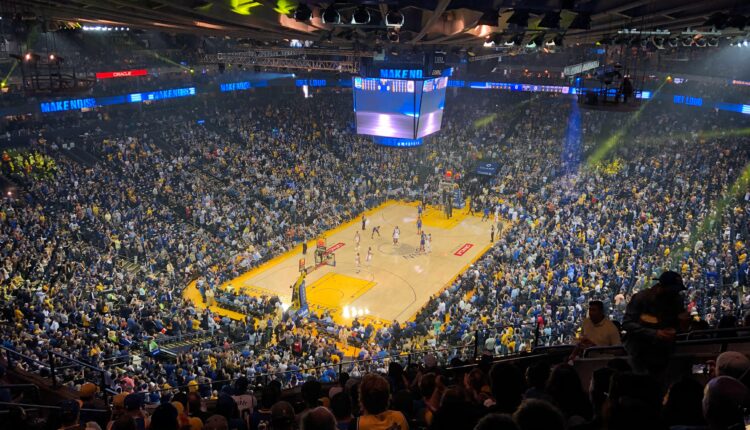
5. Massachusetts Sports Betting Dies in Senate
In an effort to approve the state’s Economic Development bill prior to the July 31st legislative deadline, Massachusetts lawmakers rushed their most recent draft to the floor for a vote. The bill was drafted to provide emergency relief for COVID-19’s impact on the region, and while the inclusion of legalizing sports betting would have led to economic and employment growth opportunities, the state’s senate did not feel that the bill serves as the proper legislation to push the initiative through.
Tuesday’s House vote saw the bill pass with 156-3 support, but the Senate took issue with the section relating to regulated sports betting market. Hours of deliberation and numerous failed ammendment proposals led to the Senate nixing the bill’s section related to betting, and the remaining legislation passed with a unanimous vote.
Senator Michael Rodrigues, a longtime advocate of sports betting, expressed his desire to bring the industry to the state but acknowledged that a relief bill was not the way to introduce the practice to his constituents. “As it relates to sports gaming, sports wagering, I believe that certainly, the time is close when we are going to be tackling this issue, but the time is not now. Nor is this the proper vehicle to do so in.”
A request to extend the Massachusetts’ legislative deadline has been approved, and state legislators now have until the end of the year to draft a stand-alone sports betting bill if sportsbooks hope to be up and operational in the near future. Estimates project that the state could generate $35 million in annual taxable revenue.
4. TheScore’ Q2 Reports Reflect Coronavirus’ Impact
Canadian sports media group theScore released their Q2 financials this week, and the impact of COVID-19 was more than evident. Showing nearly $7 million in EBITDA losses on the quarter, the company chalked it up to a decrease in programmatic advertising revenue. One of the company’s largest advertising partners dropped off early in the year, and the decrease in pageviews add overall interest in sports media hit the brand deep in their pockets.
Strictly from a sports betting perspective, theScore Bet also suffered net losses of nearly $200,000. The overall betting handle also fell 72% from Q1 to Q2, and after accounting for promotional spending and unpaid bets, total gaming revenue came in as a $17,000 net loss.
This drop in traffic and wagering interest was expected, but when compared to the 13% dip in overall handle reported by competitor PointsBet, the 72% seen at theScore does cause concern.
3. DraftKings Market Value Dip Hints To Volitaile Short-Term Market
Early investors have made a quick dime off of DraftKings’ strong opening performance, and much of the brand’s market value increase was built on the foundation that the return of sports and the ongoing spread of the American regulated sports betting market would lead to revenue boosts.
When it was announced Monday that numerous players on the MLB’s Miami Marlins tested positive for COVID-19 and that the league had decided to suspend their games, many fans and investors feared that this news could signal the end of the season.
In 24-hours, DraftKings saw their share value fall 14% as concerns for the continuation of professional sporting events grew. While all indications suggest that the NBA bubble can be a successful way to conclude a season, the problems facing the MLB have a closer relation to those that will ultimately impact football teams.
Larger teams, full seasons, and travel all lead to an increased risk of virus contamination, and the condensed seasons offer little room for leagues to reschedule matchups.
2. NBA’s Return Serves As Life Raft For Sportsbooks
The restart of the NBA season saw most sportsbooks report record traffic and overall handle since the onset of the Coronavirus pandemic. BetOnline’s Dave Mason took to twitter to announce that the company hit its highest number of active players on the site since COVID-19 first hit, with the previous high mark being July 11th’s UFC 251.
Similar trends were seen when both the PGA and NASCAR returned to action, clearly indicating that sports bettors have simply been waiting for something worth wagering on.
1. Illinois Pulls Numerous Sports From The Board
BetRivers decided to pull Korean Baseball, PGA, motor sports and low tier soccer from their boards last week in efforts to comply with the questionable language used by the state’s gaming commission. Serving as the lone active online wagering option in the region, BetRivers was asked to comply with Rule 1900.120, a rule that looks to define what constitutes as a professional athletic competition.
RULE 1900.120″Professional sport or athletic event”: A contest, event, or game at which two or more persons participate and receive compensation in excess of actual expenses for their participation in that event.
In short, the rule stipulates that events where athletes are required to pay an entry fee, such as tennis and golf, and players earn enough to cover these costs, the event cannot legally be offered as a wagering option.
In golf, for example, not all contests see players who fail to make the cut receive payment, and the unclear language of the rule doesn’t state if all players involved in a given event must meet the criteria or not.
Formal requests have been made to clear up the confusion, but rules require that the state gaming board must wait 30 days to respond to the requests, meaning that bettors must wait until August 22nd before some clarity is provided and these options can return to the wagering board.



